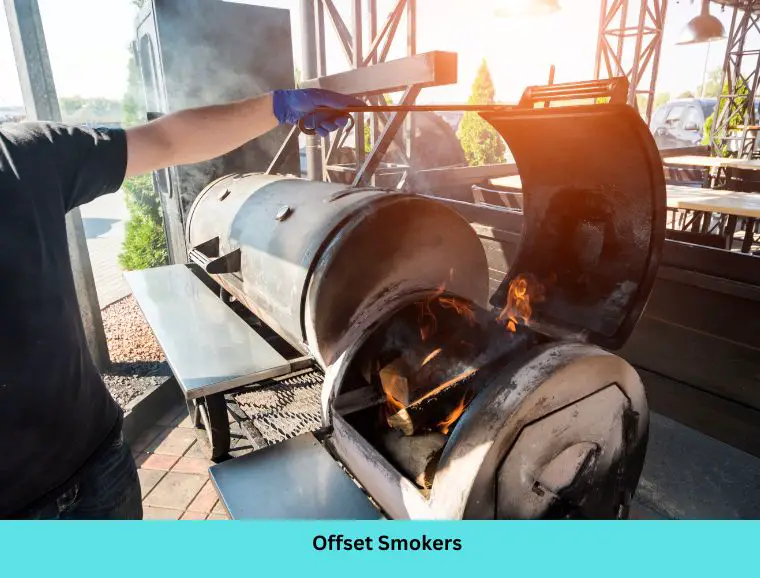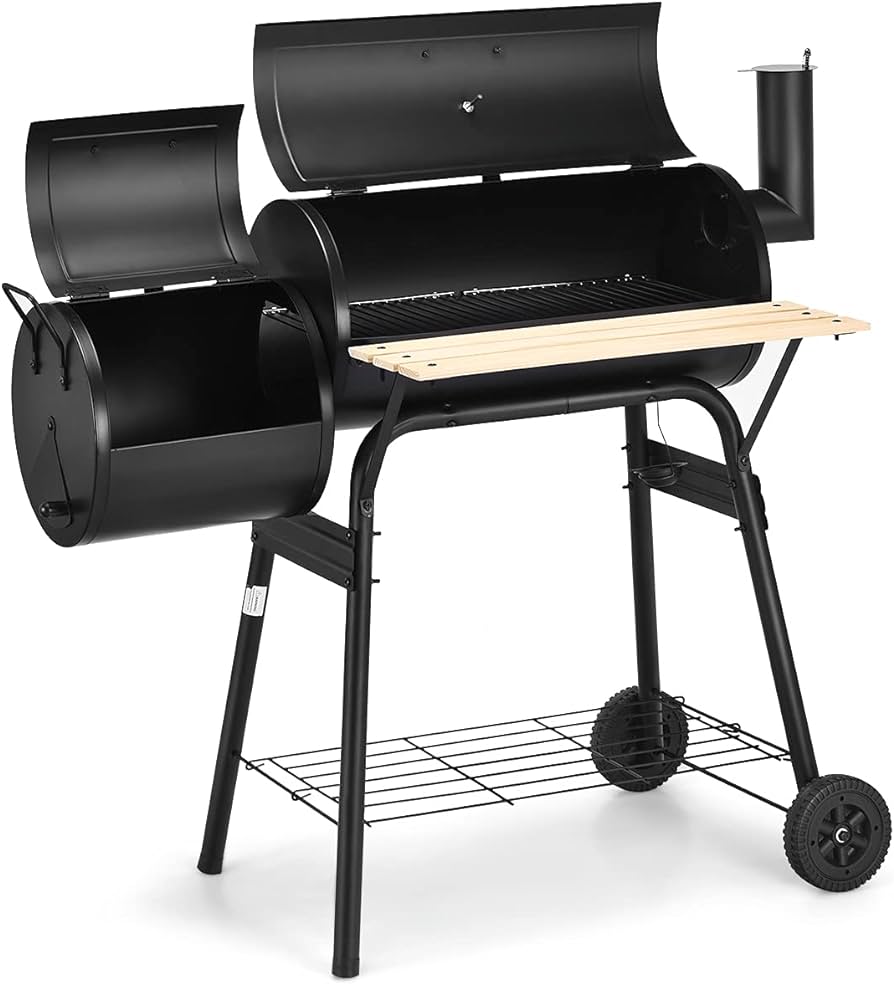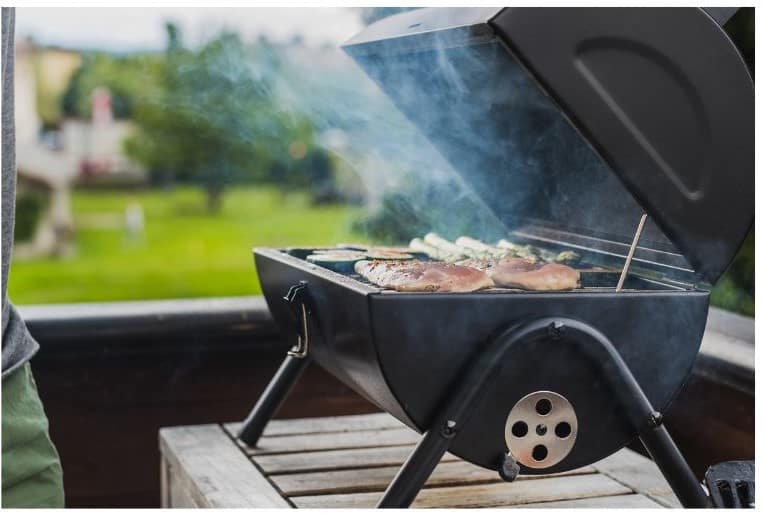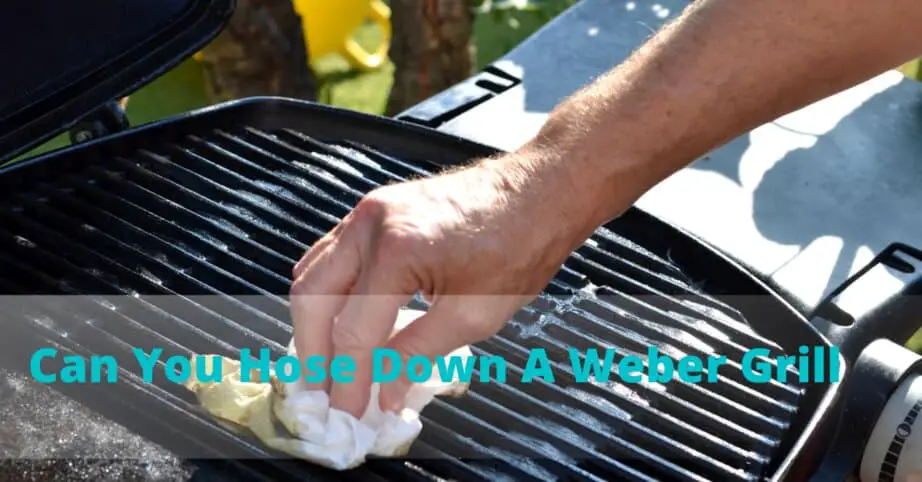Offset smokers require a learning curve and constant monitoring, making them less straightforward than other smokers. They demand a user’s attention to maintain precise temperature control.
Offset smokers, traditional in design and preferred by barbecue enthusiasts, offer the potential for crafting authentic, smoky flavors. They comprise a main cooking chamber with an attached firebox that burns wood or charcoal, allowing heat and smoke to flow into the main area where the food cooks indirectly.
Mastering an offset smoker can be a rewarding pursuit for those passionate about barbecuing. It involves managing fuel, airflow, and temperature to produce perfectly smoked meats. The complexity of these tasks can be challenging for beginners, but with practice, using an offset smoker becomes an engaging and enjoyable experience that enhances the flavor of your barbecues.
Introduction To Offset Smokers

Offset smokers, the classic choice for authentic barbecue, bring the traditional smokehouse to your backyard. Entering the world of offset smokers opens up a realm of rich flavors and a hands-on smoking experience. Perfect for those who love the craft of smoking meat, these units demand patience but reward with exceptional taste.
Origins Of The Offset Smoker
The journey of offset smokers begins in the oil fields of Texas. Workers transformed steel drums into makeshift smokers to savor their meats. This innovation laid the groundwork for today’s offset smokers, with a separate firebox that keeps direct heat away from the food. It’s a design that has stood the test of time.
Popularity Among Pitmasters
Offset smokers have won the hearts of pitmasters worldwide. Their ability to maintain a consistent temperature and produce a clean smoke flavor makes them prime for competition and home use. With practice, these smokers yield excellent results, earning a spot in the Pitmaster Hall of fame.

Credit: www.wikihow.com
Design Characteristics
Offset smokers bring a classic smoking experience. Their unique design splits them into two main parts: the firebox and the cooking chamber. Understanding these parts is key to mastering the art of smoking delicious meats.
Firebox And Cooking Chamber Dynamics
The firebox generates heat and smoke which flows into the cooking chamber. Here’s how they work together:
- Heat Source: Placed in the firebox, away from your meat.
- Smoke Flow: Moves from the firebox to the cooking chamber.
- Meat Placement: In the cooking chamber for a slow cook, infused with smoky flavors.
The cooking chamber stays sealed during smoking. This keeps the temperature steady and the smoke inside. Check temperatures with a built-in gauge.
Material And Build Quality
Good material means a great smoker. Pick offset smokers with these qualities:
| Material | Benefits |
|---|---|
| Thick Steel | Better heat retention and durability. |
| Cast Iron Grates | Excellent heat distribution for even cooking. |
| Stainless Steel | Resists rust and is easy to clean. |
Check for sturdy welding and joints with no gaps. Insulation prevents heat loss. Strong handles and wheels make your smoker easy to move.
Proper care will keep your smoker like new for years. Always cover it after it cools down to protect it from the elements.
Ease Of Use: Myths Vs. Reality
Offset smokers have a reputation in the BBQ world. Some say they are challenging to master. Let’s explore the truths and myths about using offset smokers.
Learning Curve For Beginners
Starting with an offset smoker may seem daunting. It’s like learning to ride a bike. Practice makes perfect. We’ll break down the key steps to get you up to speed.
- Temperature control: It’s about managing heat and smoke.
- Meat placement: Understanding the hot spots for even cooking.
- Fuel choice: Deciding on wood or charcoal for flavor profiles.
Common Misconceptions
| Myth | Reality |
|---|---|
| Hard to maintain the temperature | With practice, temperature control becomes intuitive. |
| Only for experts | New users can achieve great results with guidance. |
| Time-consuming | Prep is key. Efficient planning saves time. |
By busting these myths, we see that offset smokers can be accessible. With a few tips and tricks, the art of offset smoking becomes a joyous journey.

Credit: www.smokedbbqsource.com
Mastering Temperature Control
Controlling the temperature in an offset smoker is key to perfect smoked meat. It may seem tricky at first, but with the right techniques, anyone can master it. Keeping the temperature stable gives you juicy and flavorful results every time. Let’s dive into fine-tuning the airflow and understanding the impact of different fuels.
Adjusting Airflow And Heat Distribution
Getting to grips with airflow is crucial for offset smokers. The air intake vent and chimney damper work together to regulate heat. Opening these vents means more oxygen, hotter flames, and increased temperature. Careful adjustments lead to a stable cooking environment.
- Open the intake vent to raise the heat.
- Adjust the chimney damper to manage smoke and stabilize the temperature.
- Use a high-quality thermometer to monitor changes.
Equally important is the placement of your charcoal or wood. Ensure it’s evenly spread for consistent smoke and heat. A water pan can also help stabilize the temperature inside the cooking chamber.
Fuel Types And Their Impact
The type of fuel you choose affects your smoker’s temperature and flavor. Different woods and charcoals can change how you manage heat.
| Fuel Type | Heat Level | Flavor Profile |
|---|---|---|
| Charcoal Briquettes | Steady and long-lasting | Mild |
| Lump Charcoal | Hotter, less consistent | Varies by wood type |
| Hardwood | Intense and quick-burning | Rich and robust |
Experiment with different fuels to see what works best for your smoker and recipe. Remember, the right fuel means better temperature control and tastier meat.
Maintenance And Upkeep
Maintenance and upkeep are crucial for the longevity of an offset smoker. A well-maintained smoker ensures delicious meals and consistent performance. Understanding the cleaning and seasoning routines, along with long-term care, can significantly extend the life of your offset smoker.
Cleaning And Seasoning Routines
Maintaining an offset smoker involves regular cleaning and seasoning. After each use, it’s important to clean the grates to keep flavors pure and reduce the risk of rust.
- Let the smoker cool down before starting.
- Remove ashes and unburnt fuel.
- Scrub the grates with a grill brush.
- Wipe down surfaces with a damp cloth.
- Season the grates to prevent rusting.
To season, lightly coat the grates with cooking oil and heat the smoker for a few hours. This process creates a protective layer and enhances flavor transfer during cooking.
Long-term Care Tips
For the optimal functioning of your offset smoker, consider these long-term care strategies:
- Inspect seals and joints for leaks.
- Apply high-temperature sealant if necessary.
- Check for signs of rust or wear.
- Clean the smoker thoroughly twice a year.
- Store in a dry place with a protective cover.
Regular check-ups and touch-ups help catch issues early. Always follow the manufacturer’s guidelines for specific maintenance advice.
Comparative Assessment
Welcome to a thorough comparative assessment of offset smokers. This section will help you understand how they stack up against other smokers, both in usability and cost-effectiveness. Let’s dive into this savory exploration of BBQ tools!
Offset Smokers Vs. Other Types
Offset smokers are unique with their firebox design. Many pitmasters prefer them for traditional smoking. Yet, are they user-friendly compared to their counterparts?
- Offset smokers require mastery over heat control and fire maintenance.
- They offer a larger cooking surface, suited for big events or large family meals.
- Pellet smokers, by contrast, regulate temperature automatically.
- Electric and gas smokers provide ease with simple temperature dials.
- Offset smokers demand more attention during cooking than electric or gas options.
Despite a steeper learning curve, offset smokers promise authentic flavor and fun.
Cost-benefit Analysis
When considering cost versus benefits, offset smokers present an interesting case. A detailed breakdown illuminates the actual value they provide.
| Feature | Offset Smokers | Other Smokers |
|---|---|---|
| Initial Cost | Higher | Varies |
| Longevity | Durable, long-lasting | Depends on build and price |
| Fuel Efficiency | Less efficient | More efficient |
| Taste Quality | Superior, Authentic | Can be less smoky |
| Maintenance | Needs regular upkeep | Varies, some are low-maintenance |
Offset smokers might appear costly upfront. They boast durability and unmatched taste. Regular maintenance ensures longevity, making them a worthy investment for serious BBQ enthusiasts.
Expert Tips For Optimal Use
Mastering the art of the offset smoker unveils a realm of culinary possibilities. For enthusiasts eager to embrace the low and slow approach, here’s a scoop on utilizing these robust units to their full potential. Embrace the journey, for every brisket and rib rack becomes a canvas for your newfound smoking skills.
Do’s And Don’ts From Seasoned Smokers
Precision leads to perfection. Follow these tried and tested pointers to transform your smoking sessions into a seamless routine.
| Do’s | Don’ts |
|---|---|
| Maintain consistent temperature. | Open the lid too often. |
| Preheat the smoker. | Ignore the importance of airflow. |
| Invest in quality fuel. | Forget to check for leaks. |
| Clean after each use. | Rush the process. |
Accessory Recommendations
- Wireless Meat Thermometer: Keep tabs on your cook without lifting the lid.
- Heat-Resistant Gloves: Manage hot grates and meat safely.
- Charcoal Chimney Starter: Kickstart your coals evenly and efficiently.
- Quality Smoking Wood: Cherry, hickory, or oak add rich flavors.
- Basting Brush: Apply sauces and marinades with ease.
- Cleaning Tools: A scraper and brushes for post-smoke clean-up.
Equip yourself with the right tools and watch your offset smoker become an ally in your BBQ adventures. Happy smoking!

Credit: www.angrybbq.com
Frequently Asked Questions On Are Offset Smokers Easy To Use?
What Are The Benefits Of Offset Smokers?
Offset smokers offer authentic smoke flavor, precise temperature control, and ample cooking space, making them ideal for traditional barbecue enthusiasts.
How Do You Maintain An Offset Smoker?
Regularly clean the grates, empty ash, and maintain a consistent temperature by managing air vents and coal levels for optimal smoker performance.
Can Beginners Operate Offset Smokers Effectively?
With basic knowledge of fire management and patience, beginners can effectively use offset smokers to produce delicious, smoky-flavored barbecue.
Conclusion
Taking on the challenge of operating an offset smoker can initially seem daunting. Yet, with patience and practice, mastering its use is undoubtedly achievable. Embrace the journey of flavor exploration, and you’ll find that the succulent results are more than worth the learning curve.
Happy smoking!




